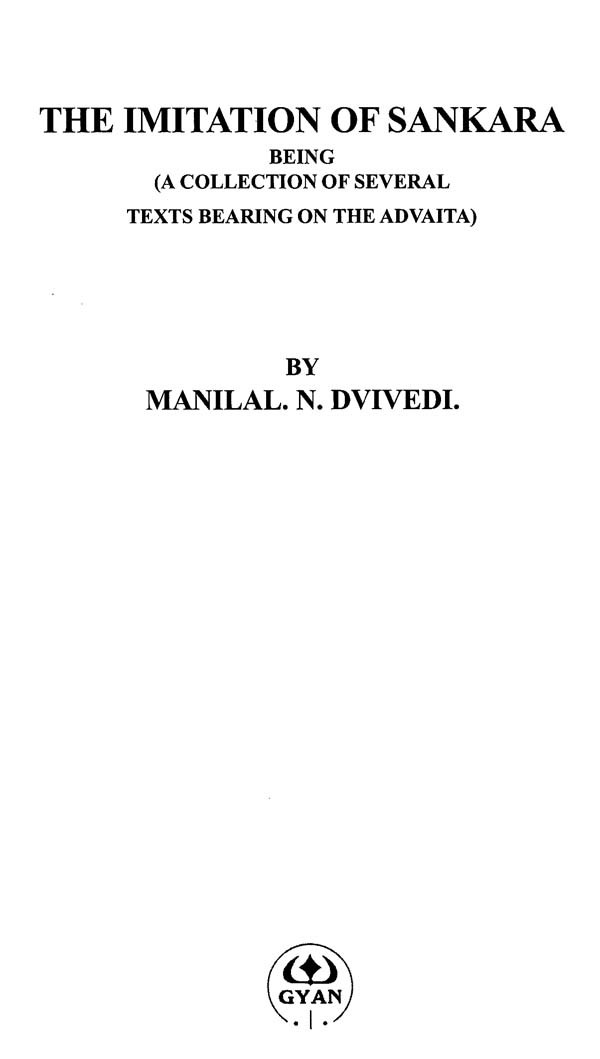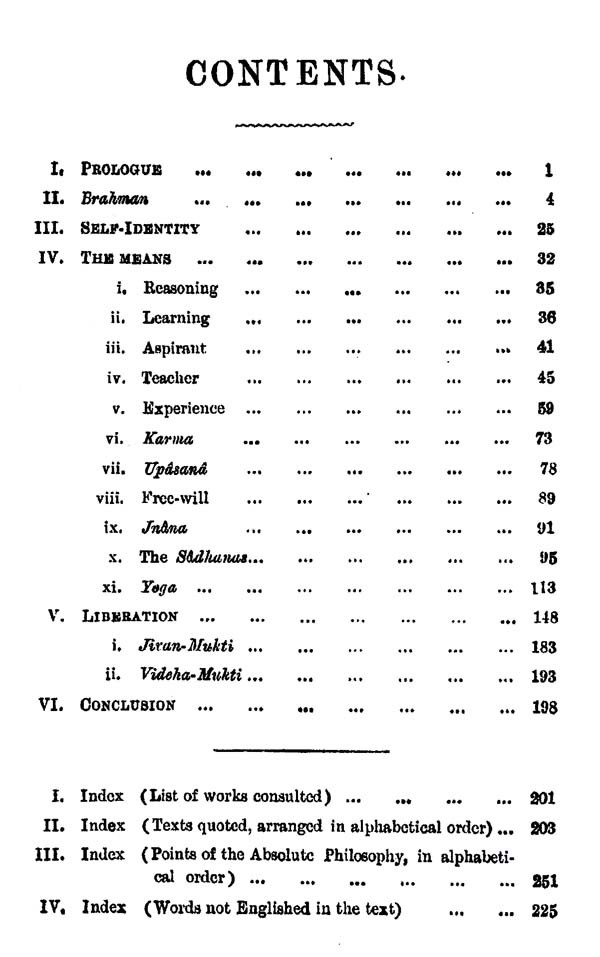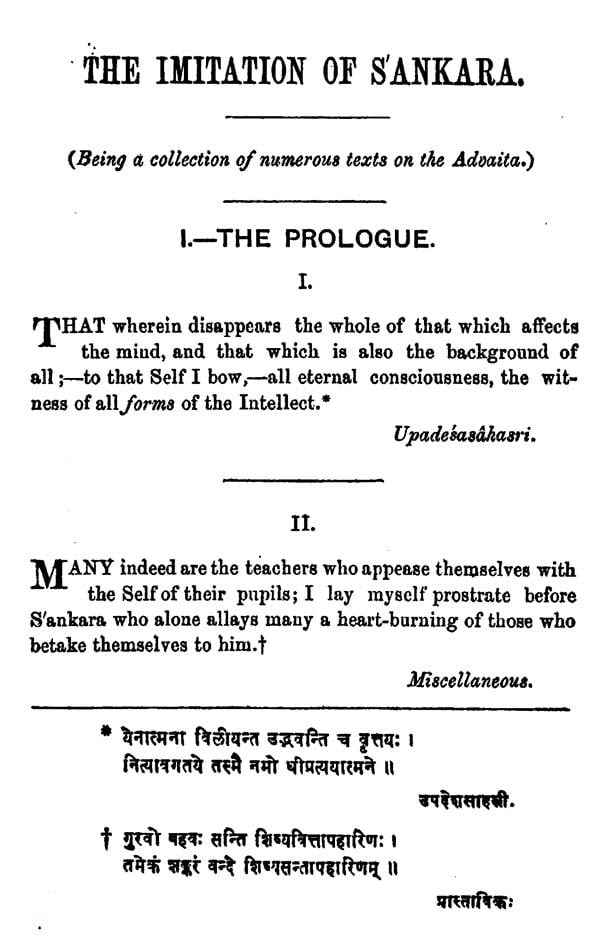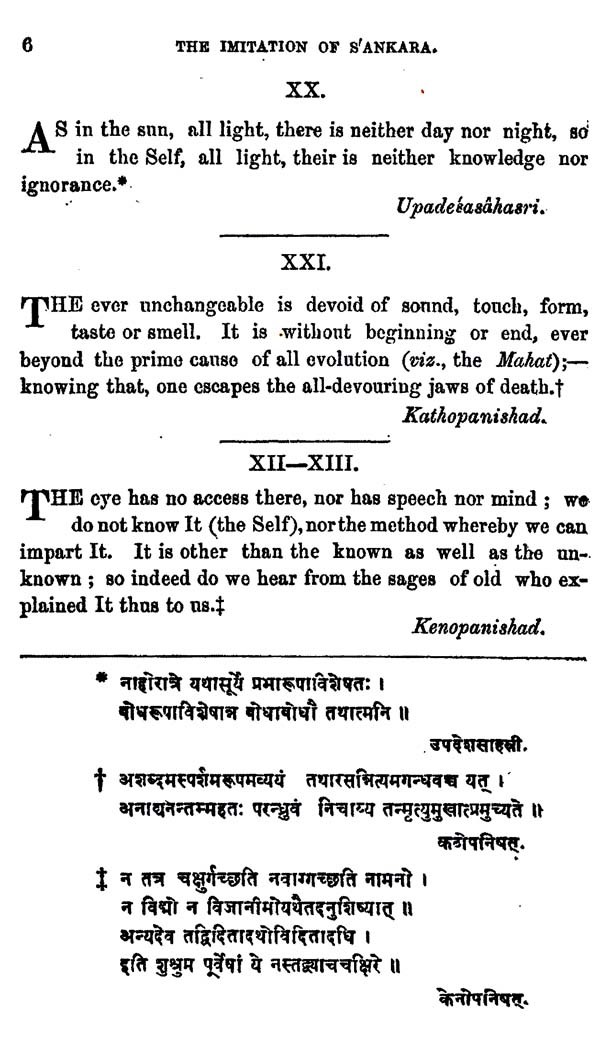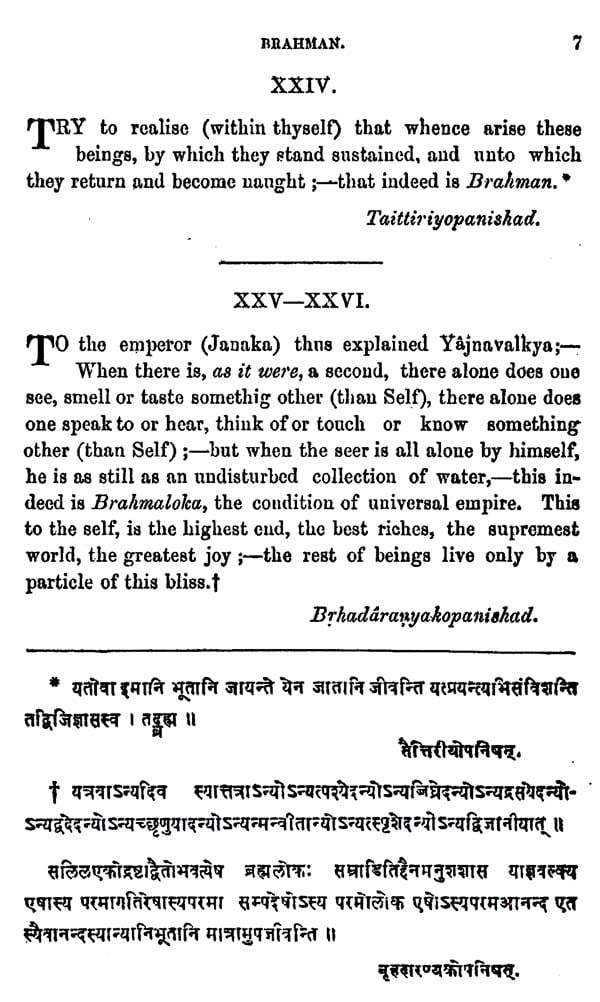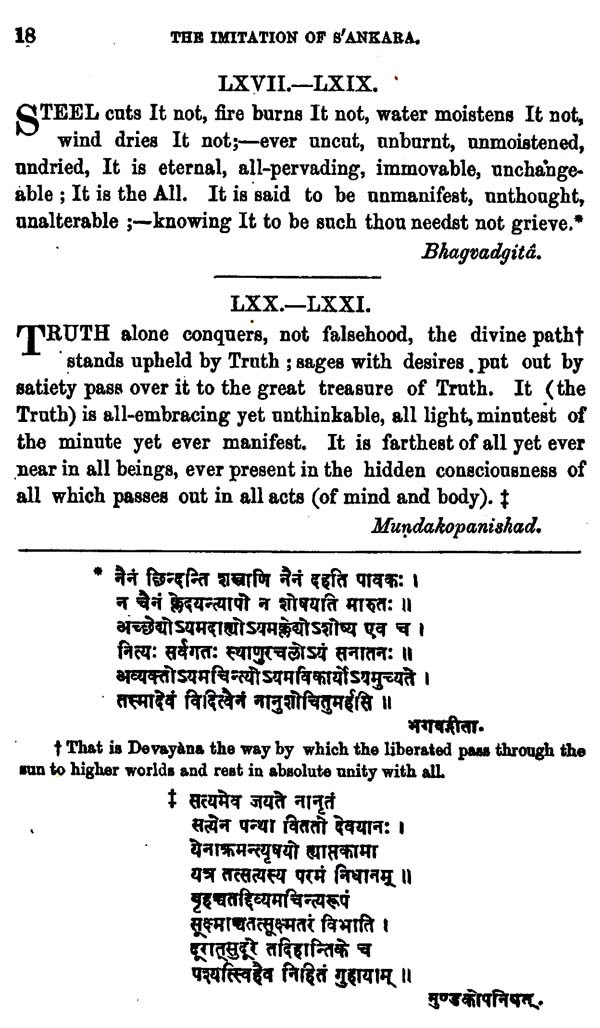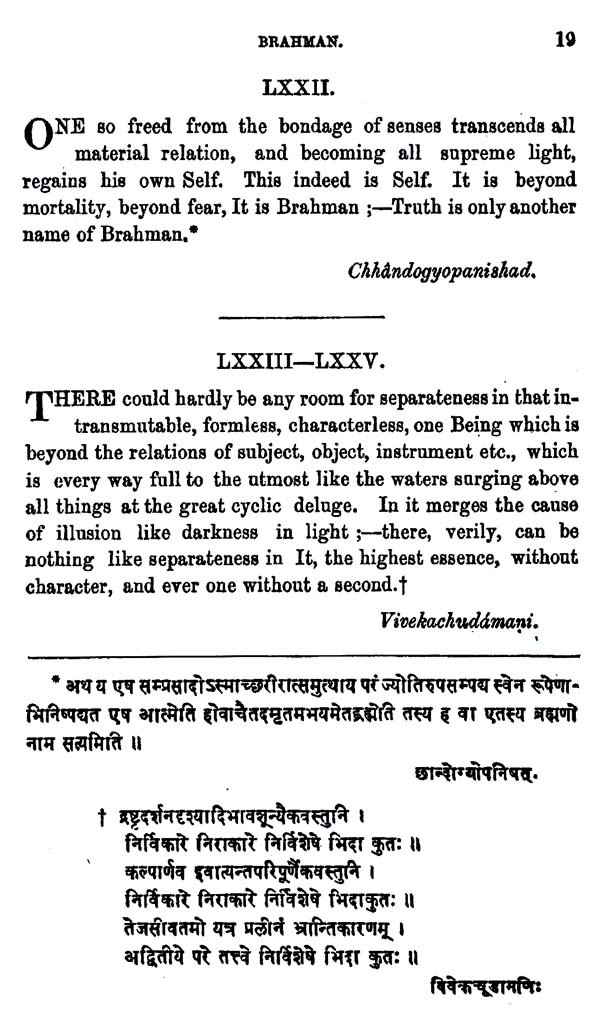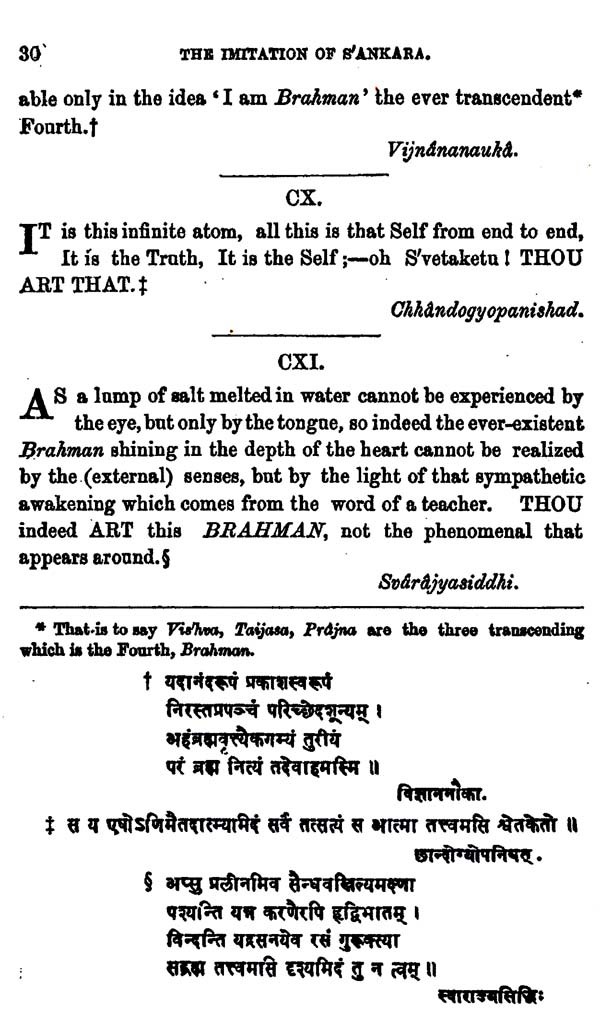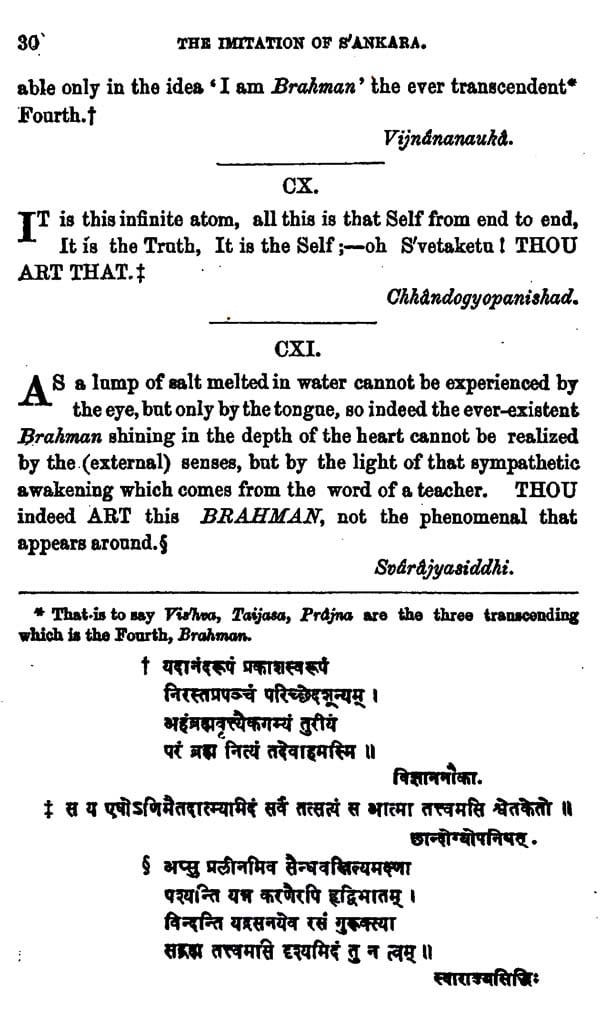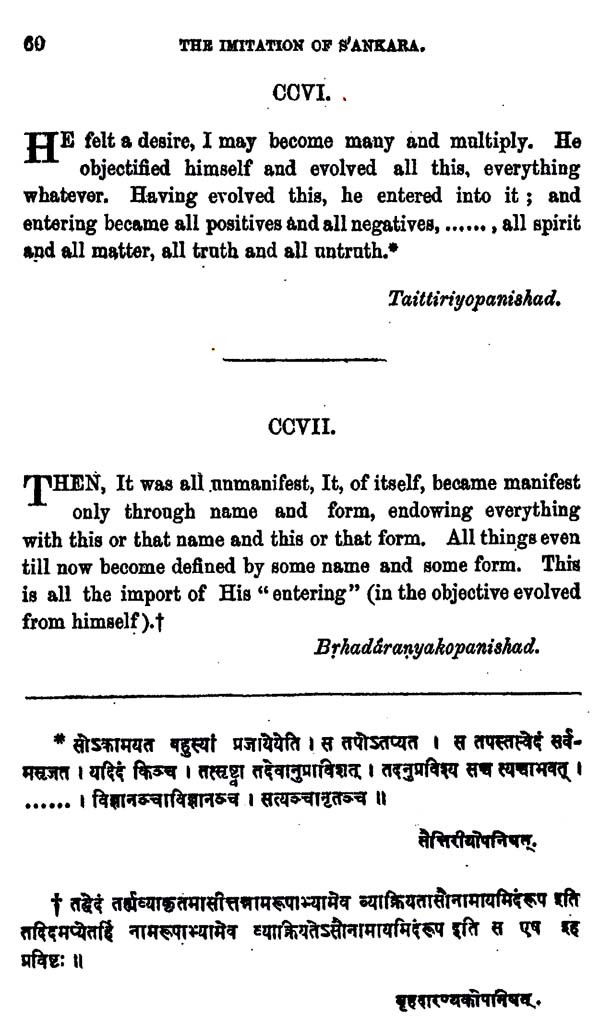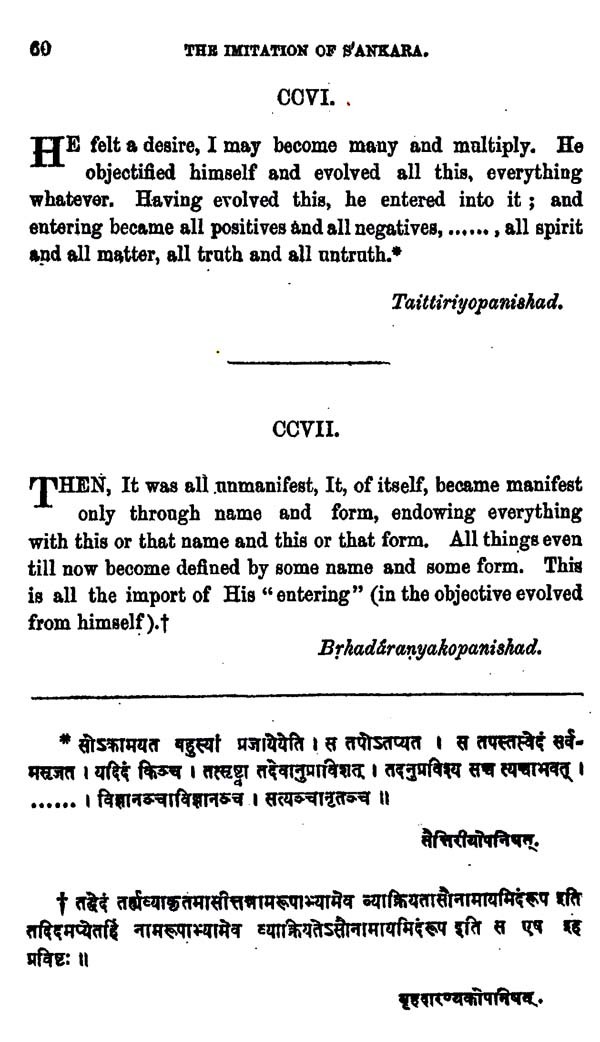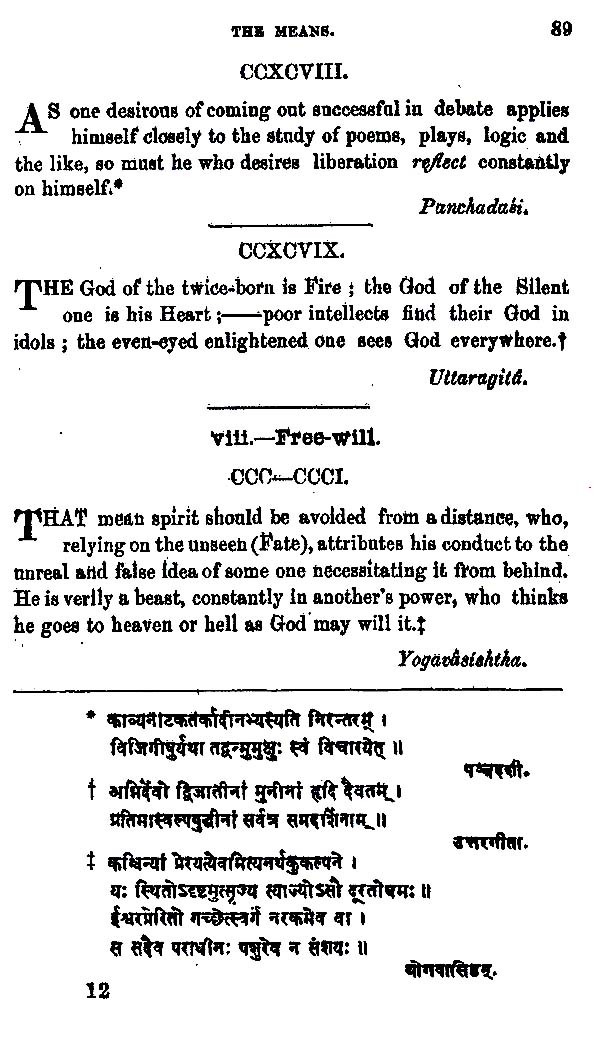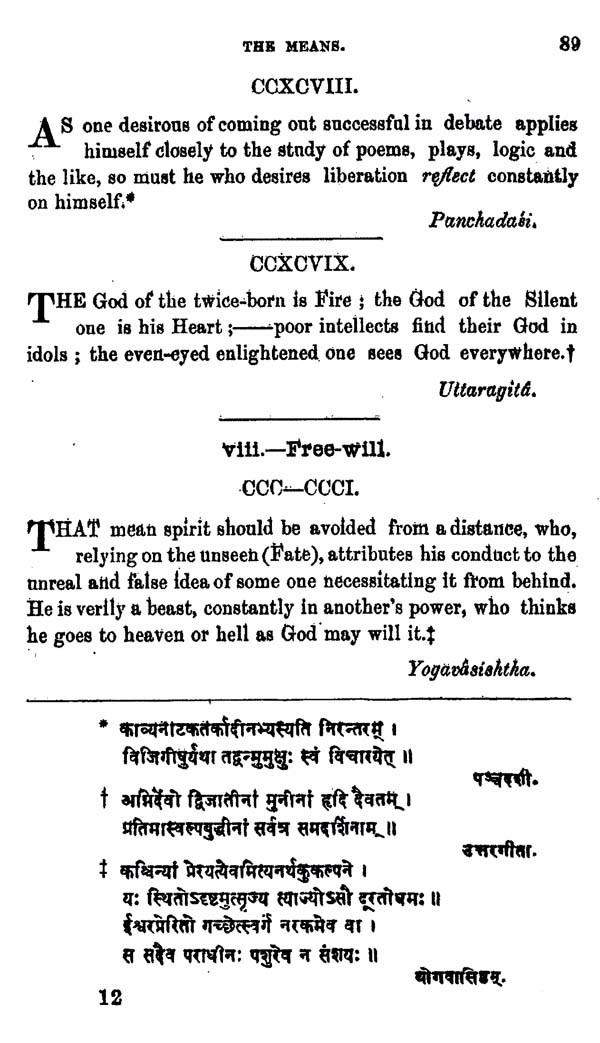About the Book The collection here is not entirely from the works of Sankara, but from all works bearing on the Philosophy taught by Sankara and his followers. It is not certain when Shankar lived; some place him after, some before Christ. He was a Brahmana native of some obscure town on the coast of Malabar. He is reported to be an incarnation of god Shiva. He found the Light while yet eight years of age, and, with the permission of his fond mother. lie renounced the world and became a Sannijmin. One thing is clear from the records we have of this great teacher. India was divided into a number of religious sects, the people were torn into a number of castes, and the dry forms of ritualism were crushing all spirit our of the true Ideal of the Veda. This Ideal lay in the Advaita the last initiation spoken of in the Upaniahadu. The keepers of this Mystery were daily growing jealous of all who, without the training, tried to lift the veil in idle curiosity. Those who caught glimpse of the Truth liad not strength to bear its glare.
About the Author Manilal Nabhubhai Dwivedi (1858-1898) was a Gujarati-language writer, philosopher, and social thinker from British India, commonly referred to as Manilal in literary circles. He was an influential figure in 19th-century Gujarati literature, and was one of several Gujarati writers and educators involved in the debate over social reforms, focusing on issues such as the status of women, child marriage, and the question of whether widows could remarry. He held Eastern civilization in high esteem, and resisted the influence of Western civilization, a position which drew him into conflicts with other social reformers of a less conservative outlook. He considered himself a "reformer along religious lines" Manilal's writings belong to the Pandit Yuga - an era in which Gujarati writers explored the traditional literature, culture and religion to redefine contemporary Indian identity when it was challenged by the Western culture brought by the colonial rule. His writing career began in 1876 with the poem Shiksha Shatak and continued until his death. He contributed to almost all popular forms and published poems, plays, essays, an adaptation of an English novel, book reviews, literary criticism, research, edited works, translations, and compilations. His autobiography was not published until 1979. His prose writings have been collected in Sudarshan Gadyawali (1909). He was an exponent of Advaita philosophy; throughout his life, he interpreted all aspects of human life and civilisation in the context of Advaita Vedanta, writing several articles and books on the topic.
**Contents and Sample Pages**
